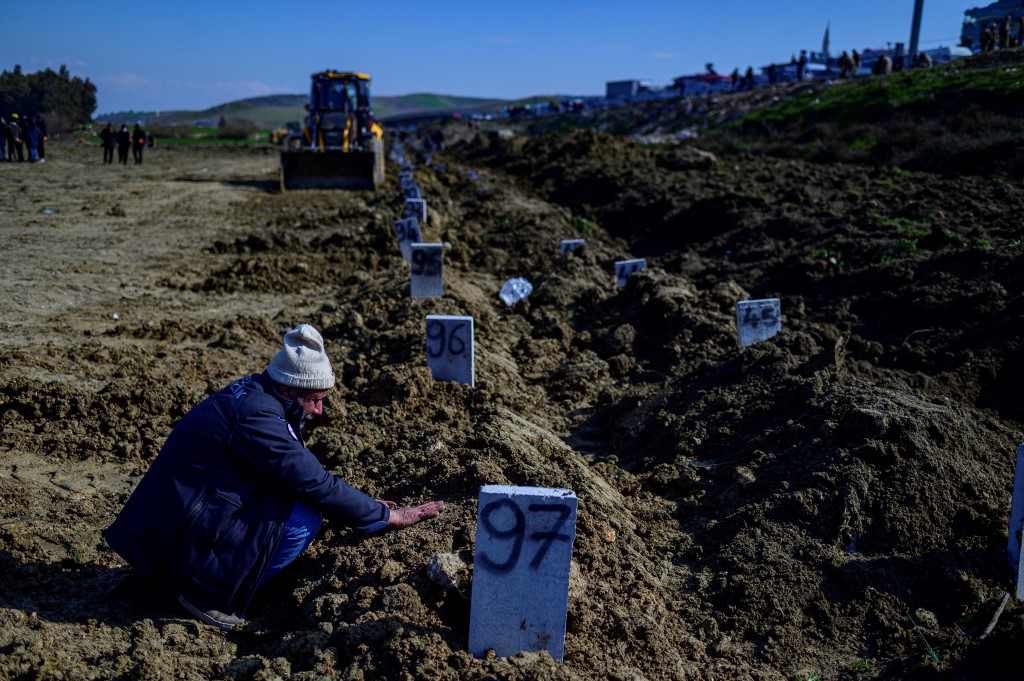Softly patting the ground, the tearful mourner bids farewell to the deceased — one among 1,000 resting in a hastily made cemetery that used to be a cotton field in southern Turkey.
All he has to identify his loved one who died in Monday’s massive earthquake is a concrete slab with a number.
“97” is one of more than 24,000 people killed after the 7.8-magnitude earthquake hit Turkey and Syria.
Dozens of sheep graze meters away from the freshly dug graves in the city of Antakya in Hatay province.
The road leading to Antakya is blocked by vans carrying more bodies as the death toll mounts with each passing day.
A white van arrives at the field. Inside, there are four bodies in black body bags. Six men lift each bag, placing them gently in the newly dug graves.
A man begs them to wait, in tears: “One minute, one minute,” he says, repeating just one name — “Emine.”
Within a few minutes, the bodies are covered by earth and the concrete slabs spray-painted with the numbers 94, 95, 96 and 97 serving as temporary tombstones.
More bodies arrive. Around 600 people were laid to rest on Friday, among the more than 5,000 people who died in Hatay, including Antakya.
Families hug each other tightly near the graves. A group of women weep as volunteers try and console them.
‘Terrible’
In the car park nearby, vans carrying bodies struggle to find parking space.
The vehicles came from all over Turkey — Antalya province in the south, Bursa in the northwest, and even Kars in the northeast, 14 hours away — to carry the bodies from Hatay.
The stench of death is overpowering. A volunteer, in a black coat and blue vest, hands out gloves and surgical masks.
Behind folding tables, around 15 people wearing masks wait for relatives to sign death certificates for victims who have been identified.
But almost no one comes to find them.
Close to the tables, an imam is sitting on the ground. He came from Usak province, 900 kilometers (560 miles) away from Hatay.
“Some 400 imams from all over Turkey have been sent to Hatay to perform the funeral prayers,” Yusuf Özcan said.
The scale of the tragedy has been overwhelming. “It’s terrible,” he said, fatigue etched onto his face.
Özcan cannot even say how many prayers he has performed.
“A lot,” said the imam, in blue jeans and vest.
On the other side of the road looking over the makeshift cemetery just 200 meters (650 feet) away, the Deniz family watches the non-stop arrival of vans and excavators.
They can no longer live in their home behind them, so they have been sleeping in a white tent set up 10 meters from the road.
“The governor and officials came two days to take the land. We thought they had come to set up tents for survivors,” Kemal Deniz, 35, said.
The field where the bodies lie used to grow cotton and wheat, the mechanic said.
“From now on, we will wake up every morning to this. It’s hard, but we have no other choice,” he added.
© Agence France-Presse

